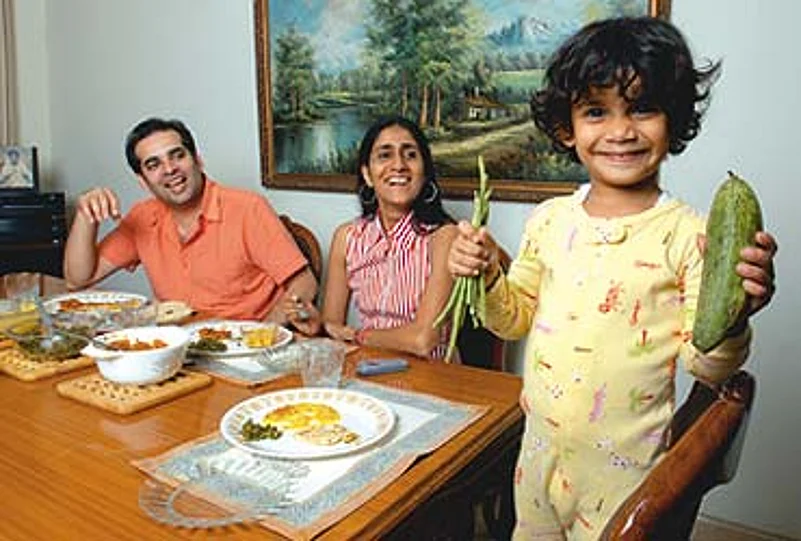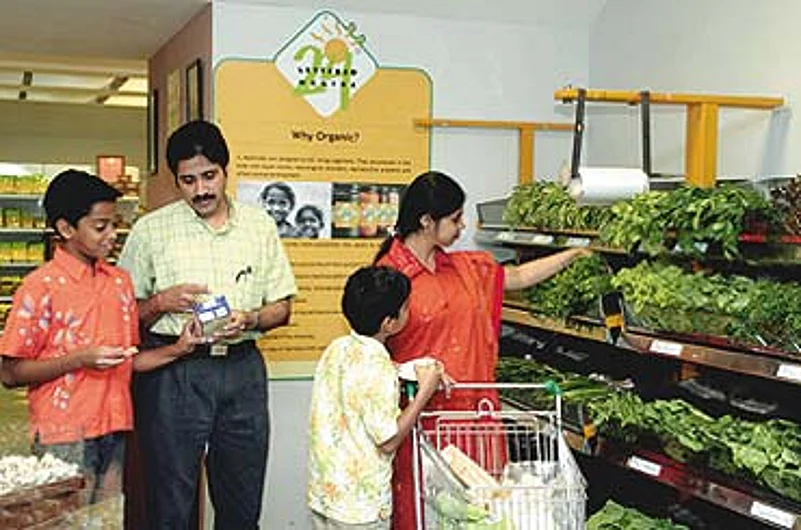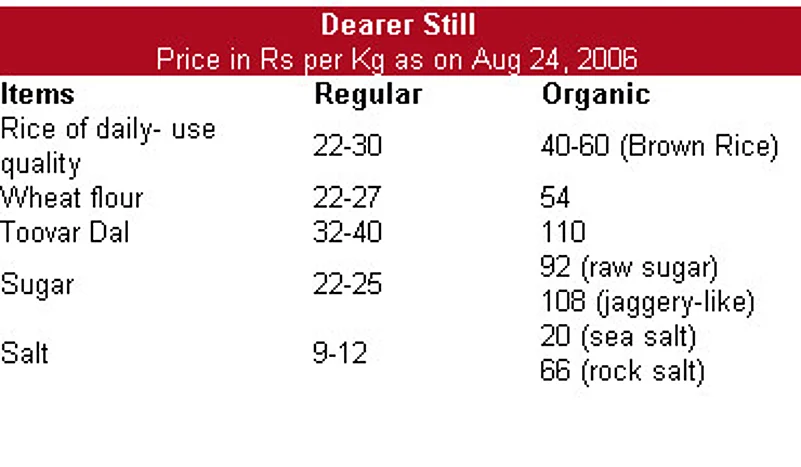Those who have switched over to organic foodstuffs swear by the difference it has made to their well-being. A vociferous advocate is the well-known market researcher-turned-organic farmer Titoo Ahluwalia, whose Anshu Foundation supports organic farming in Nandgaon, Maharashtra. He recently bought eco-nutritionist Kavita Mukhi’s Conscious Food—a lovingly nurtured organic food company that only sees red balance-sheets. Mukhi, though, sees a green light ahead. As more people become aware of the toxics in their thalis, they will turn to organic food, and the supply-demand equation will eventually result in lower prices.
Organic food—cereal, grain, oilseeds, fruits, vegetables, et al—is that which is grown without the use of pesticides, fertilisers, chemicals, livestock feed additives such as antibiotics or steroids, and stored without preservatives and additives. It’s chemical-free food that retains all natural nutrients. Most organic food grown in India is exported, and is happily lapped up by the $25-30 billion global market. The rest of it is sold at designated retail outlets, not at the neighbourhood grocer’s. Our organic food industry concentrates largely on cereals and grains—organic vegetables and fruits are still hard to find.
Nutritionist Anju Venkat, whose mother Dr Vijaya Venkat pioneered the holistic health concept in Mumbai in the 1980s, is emphatic about the importance of food’s holistic character rather than just its organic origins. "You can buy organic brown rice but put it in a microwave, or organic vegetables but overcook or deep fry them—then your food would still be inorganic for the body," explains Venkat. "Research shows that most digestive enzymes get destroyed by cooking. So, we have to look at the entire process as organic." The holistic method recommends no or minimum cooking, without robbing food of its taste. "You must look at criteria of nutrition, look to balance health and taste. My mantra is go seasonal-and-regional—what you get fresh in a season in your vicinity is the best for your body," saysVenkat.
***

Sumeet Nair and Gitanjali Kashyap
After studying in California, a state full of health freaks, entrepreneur Sumeet Nair returned to Delhi a devotee of organic food. His wife, GitanjaliKashyap, owned a farm in Chhattarpur, and five years ago they began growing organic crops there, including wheat and vegetables, for their own household, family and friends. "Everyone in the West is aware of the benefits of organic food," saysGitanjali, "but here people just don’t know how dangerously contaminated food can be."
Incidence of cancer within her own family strengthened her faith in organic food. "If it was caused by the food they were eating, I wouldn’t expose my children or husband to such risk," she says. "Organic food can make a big difference to one’s long-term health. And our vegetables and rotis taste so much better."
--Prayag Akbar in Delhi
***
The Chintalapatis

When Srikanth Chintalapati, 38, a director with an IT firm, his wife Revathy, 36, and their two sons returned to Hyderabad last year after three years in Sydney, they switched to eating organic food. "Grapes and cabbages, spinach and lettuce get sprayed at least 20 times with pesticide before they reach us—just imagine what eating food like that could do to our health!" says Srikanth. Revathy finds that not only do organic vegetables taste far better, they also stay fresh longer, and organic dals cook faster.
"Except for a few things like milk and maida which are not available, you can say we are a family that lives on organic food," says Srikanth. They estimate that going organic has upped their food bill by about 25 per cent. "But it’s a small price to pay for better health for the family," says Revathy.
-- Madhavi Tata in Hyderabad
***

Where to shop
Delhi: Navdanya
Tel: 011-55343067
Hyderabad: 24 Lettered Mantra
Tel: 040-23300404
Bombay: Conscious Food
Tel: 022-56548604


























